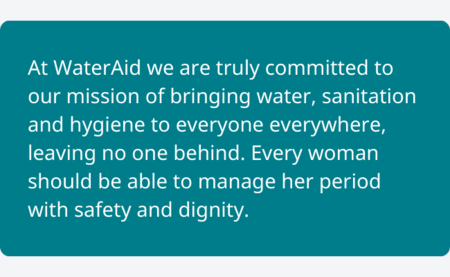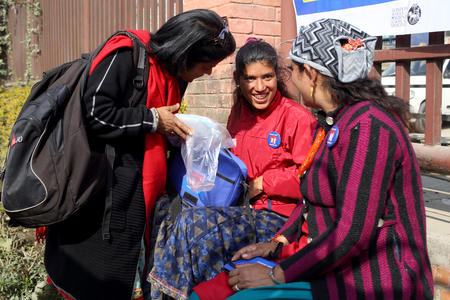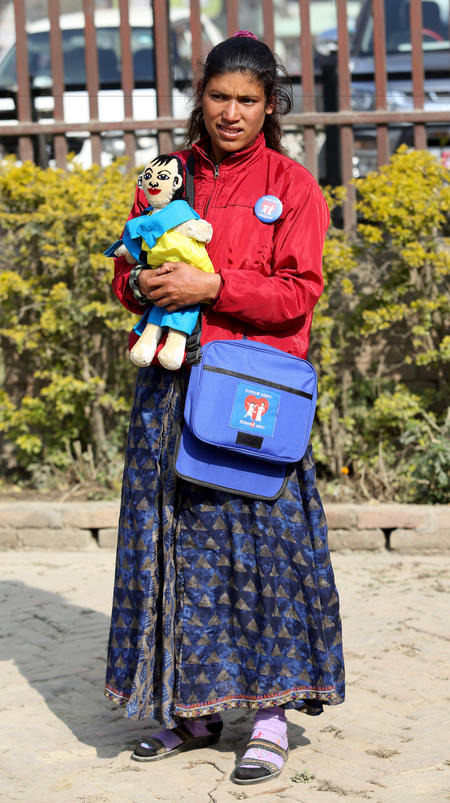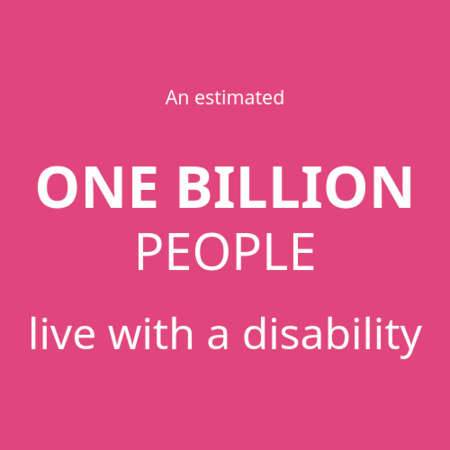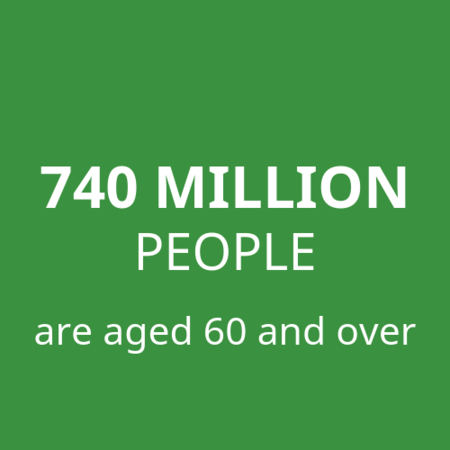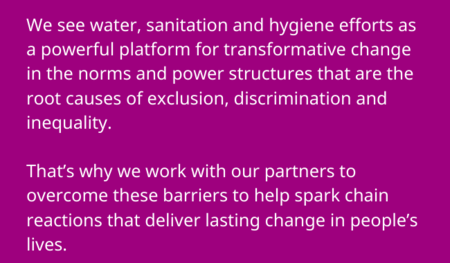When a community gets clean water for the first time, it creates a powerful ripple effect, saving lives and improving people’s health, education and livelihoods. Water is just the beginning.
Bishesta gets her period
Meena is 22 years old and has lived in the town of Banepa all her life. From a very young age Meena’s parents knew she would need extra care. She has three siblings but is the only one with an intellectual disability.
When Meena first got her period, she did not understand what was happening. She was frantic and tried to confide in her mother, Kanchhi, thinking that something was very wrong with her body. Kanchhi tried to assure Meena that what she was experiencing was normal and taught her how to use a menstrual pad. However, Meena would constantly remove the pad or dispose of it improperly, leaving her feeling irritated and unclean. Kanchhi struggled to find a way to help Meena understand what was happening to her and the importance of healthy menstrual hygiene management.
The struggle that Meena and her mother faced is common in the developing world. Educational programs for people with disabilities often do not factor in the needs of menstruating women and girls. Meena’s needs were being overlooked and her mother could not find the resources to support her child.
Kancchi was determined to find a way to help so she began working with Meena and a team of researchers from WaterAid to create an educational initiative designed for women with intellectual disabilities. By listening to Meena and others with similar challenges, WaterAid developed a program whereby caregivers show women with special needs how to manage their periods, rather than tell.
The program centers around the story of Bishesta, a young girl who gets her period for the first time, and Perana her caregiver. Program facilitators use a storybook of colorful illustrations and give each participant a cloth doll of Bishesta. The women and girls learn about their periods through Bishesta’s own story and are able to practice changing Bishesta’s menstrual pad and disposing of it properly. Meena strongly identified with the characters and Bishesta became her role model. Through this activity Meena was able to understand how to handle and dispose of her own menstrual pads and to see menstruation as a sign of a healthy body.
Now Meena is equipped to manage menstruation and Kancchi has seen Meena grow more confident, comfortable, and independent.
Leaving no one behind
In 2010 the United Nations General Assembly explicitly declared that every person has the right to clean water, toilets and good hygiene and that these three essentials were necessary for the realization of all human rights. In doing so, the Assembly sought to galvanize the allocation of financial resources and political will to reach everyone, everywhere with water and sanitation by 2030. Since then, much progress has been made and communities around the world are transforming as governments, the private sector and non-profits work with civil society leaders to gain access to water and sanitation. Yet, within the communities with new taps, toilets, and healthy hygiene practices, distribution of access is still a challenge. Even the most well planned projects can unintentionally overlook certain groups including people with physical or mental disabilities and the elderly.
Dirty water, inadequate toilets and poor hygiene rob people of opportunities that should be available to everyone, everywhere — health, education and financial stability — further entrenching cycles of poverty and exacerbating patterns of alienation, stigma and exclusion.
One in seven people across the world have a disability and 80 percent live in developing countries. Many people with disabilities face discrimination and stigma in their everyday lives; they often remain locked out of opportunities, and as a result remain locked into poverty.
Without accessible toilets and taps, often the only way to get water or go to the toilet is with the help of someone else. WaterAid is working to change that.
Ghulam, Pakistan
"I can now go to the washroom by myself without anyone having to accompany me and without any difficulty"

15 years ago, Ghulam Fareed was hit by a motorbike while walking in his village in Pakistan. His injury never fully healed and eventually led to full paralysis from the waist down. At 68, Ghulam was forced to rely on his sons’ help to go to the bathroom in a nearby field. When WaterAid began installing household toilets in his community, we discussed how to construct a bathroom that could accommodate the tricycle Ghulam uses to move around. Together with our partners, we built a bathroom with an extra-wide ramp that Ghulam can easily navigate whenever he needs to use the bathroom.
Rafarasoa, Madagascar
"Having taps is the biggest change I have seen in my whole life for a rural village like ours."

Older people, especially women, are more likely to live in extreme poverty with no income to support themselves. Collecting water from far away and carrying it home, or going to the toilet outdoors, can be particularly challenging for them because of limited mobility and strength. These daily tasks make it more difficult to live independently. Older people are often left out of community discussions about installing taps and toilets. Where this is the case, their valuable experience is wasted, and they continue to be disadvantaged. In a rural village in Madagascar, 84-year-old Rafarasoa had to fetch water from a contaminated source down the hill.
Rafarasoa’s children helped build the tap stand that is located directly behind her house to make it easier for her to access.
Maria, Uganda
"I love our new school toilet because it has a seating pan and supporting metal bars, the toilet is easy to use, does not smell and is always clean."

The only facilities in Maria’s school in Kampala, Uganda were squat toilets. Because she has one leg, going to the toilet was painful and awkward, so Maria would wait until she was home to relieve herself. Working with our local partners and input from Maria herself, WaterAid helped build a sitting toilet with a handrail at her school which is far easier to use. She says she wishes all schools had a toilet like this for people with physical disabilities.
Miss Poppy describes what it's like to be socially excluded, and the impact an accessible washing, water and toilet block has had on her life.
Ensuring bathrooms, handwashing facilities and water points are accessible to all is a challenge WaterAid faces in many areas where we work. To tackle this, WaterAid’s human rights-based approach pays attention to the power dynamics between people who experience marginalization and those who make decisions.
In every program we’re part of, in every country we work, there’s an opportunity to think about how we can bring about better outcomes for the most marginalized people in society like persons with disabilities and the elderly. Our work acknowledges and addresses the inequalities that marginalized groups face, but also goes one step further by ensuring that these people are actively involved in the solutions. In our work of building better water, sanitation and hygiene systems, we seek opportunities to listen to the voices of marginalized people and ensure they are involved at every stage of the process.
Since 1981, we have reached 25.8 million people with water
We are international nonprofit organization and work in 33 countries to change the lives of the poorest and most marginalized people with clean water, decent toilets and hygiene education.
